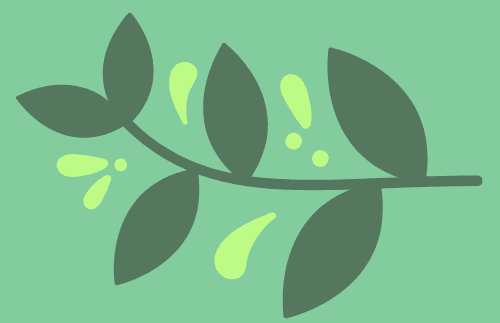Last updated on October 23rd, 2023 at 08:30 pm
Better known as ‘flax chaff’, this biodegradable material has multiple applications in the garden where it is a first choice mulch for plants. Focus on…
Contents
What are flax flakes?
Flax chaff is a product of the textile industry. They are produced during the extraction of the plant’s fibers (scutching) and come in the form of small fractions of light-colored stems (shives).
Natural, non-toxic, neutral pH, these flakes are definitely an excellent mulching material for the garden! Rich in organic matter, they decompose progressively in the soil bringing a lot of nutrients and favoring the life of micro-organisms. Lightweight, they are added to the soil to loosen it.
Where to find flax chaff?
Flax chaff can be found in its compressed form in bales or in bags in cooperatives, garden centers and even on the Internet. Compressed bales are a good choice if you need to buy large quantities of chaff, transport it and store it. This will save you valuable space!
Specificity of flax chaff
Flax chaff used for mulching in the garden has specific characteristics:
They lighten clayey, compact and heavy soils once mixed with the soil.
They do not vary the pH of the soil because they have a neutral pH unlike other plant mulches.
They have an excellent water retention capacity (more than 200% by mass of dry product).
They contain a lot of organic matter.
They are light and therefore easy to use and handle.
Uses in the garden
Flax chaff is mainly used as mulch, especially against the cold in winter because it insulates and protects the roots from frost.
They also retain moisture in the soil and allow to limit watering in summer.
Spread out in thick layers, they prevent the growth of undesirable weeds, then by decomposing, they fertilize the soil and improve its structure.
They are also used to lighten heavy or asphyxiated soils. Simply bury them and mix them with the soil.
Flax chaff has a light color and a slightly shiny texture. This type of mulch is very decorative at the foot of plants in beds or in landscaped courtyards. It enhances dark foliage such as Japanese maples or ophiopogons, and works well with grasses to emphasize their wildness.
This mulch is an excellent barrier against gastropods, which have a hard time slipping on the stem fragments, so it is ideal around recently transplanted seedlings.


